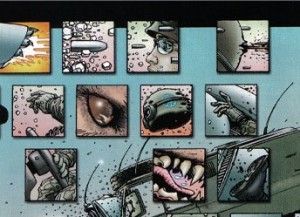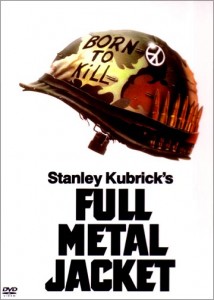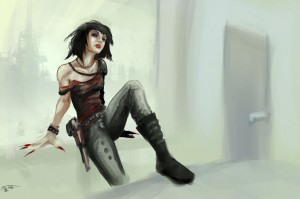Let me tell you a story
Of a boy with no soul.
Nothing’s wrong with him, really
But he isn’t quite whole.
Now, the boy was a Who—
Wait, there’s doubt about that.
Since his Whomanity’s in question
Let’s just call him Matt.
See, Matt’s a bit diff’rent from most other Whos.
Instead of a mother, he came from a moo!
But before you judge harshly,
Consider this, partially:
What we know of his kind is sometimes untrue.
Oh. Didn’t you know?
Matt’s one permutation of a Who-made sensation—
Like Cylons, Replicants, and Frankenstein’s creation.
But let’s take a pause, away from those wretches
And consider Matt’s flaws through a couple of sketches.
In the beginning, Matts weren’t born
They were harvested in bulk like bushels of corn.
Matt was a Who, for all intents and purposes
But there were some big differ’enceses
That’s why, for instance, when he first met children.
They treated him like some kind of demon.
“He is an animal” one named Steven cajoled,
“It can’t be a Who when it’s lacking a soul.
I should have known that it was a clone,
The minute I saw it was living alone.”
“That’s disgusting. Clones aren’t Whos.
Don’t they belong in mangers or zoos?”
Another kid named Emilia cried.
“I actually touched it, I could’ve died!”
Even though most Whos hated Matteo,
It was deemed wise not to openly say so.
(At least not in front of the great El Patron,
‘Cause he’s the powerful man from whom Matt was cloned)
This wealthy drug lord loved his clone dearly
(For a self-centered reason, but it was sincerely).
He lavished his clone with attention and gifts.
When Matt was down he’d give him a lift:
“Flesh of my flesh,
Bone of my bone,
I love you, Matteo
For you are my clone.”
While these words filled Matteo with hope,
A sinister motive drove the Despot of Dope.
Pity the clone—thought he was groomed for his smarts—
Not really knowing he was grown for his heart.
But don’t feel so bad for little-old Matt.
It isn’t so sad, considering that
He’s just a thing lacking a soul.
Not even one as small as a mole.
What is a soul? And how do you know?
Is it something that over time grows?
Or is it a grace only God can bestow?
Maybe Matt has it, you never know.
Why, what silly questions all of you ask.
A soul is that thing that every Who has.
And since the dear boy is not a true Who
It goes without saying, he has no soul, too.
To believe otherwise is simply taboo!
Circular reasoning?! Logical fallacy?!
You can’t accuse me when I’ve shown no malice! He—
He—
Must have no soul for that’s what I’m told.
I will believe that until I am old.
Wait a Who minute. What am I saying?
This is plain ol’ ignorance I’m displaying.
Excuse me a moment, I’m simply confused.
Oh great, dear reader, now you’re amused.
As much as it pains me, you’ve rearranged me,
I have now come to reconsider my views.
A soul’s not a thing you can smell, touch, or feel.
Nor can you hear it, or taste like a meal.
If a soul doesn’t have a distinguishing feature,
Then how can we tell if it’s inside a creature?
You say there’re other, more tangible clues,
As to whether something is truly a Who?
Why didn’t you say so before?
Is it a test, or some other, something you score?
No? You say it’s something I already know?
Look at the outside ‘n his Whomanity will show?
Hm. That’s strange. I don’t see diff’renceses
Matt is a Who for all intents and purposes.
Let me change up my story.
And forget about souls.
Nothing wrong with him.
Really.
This Who is quite whole.



